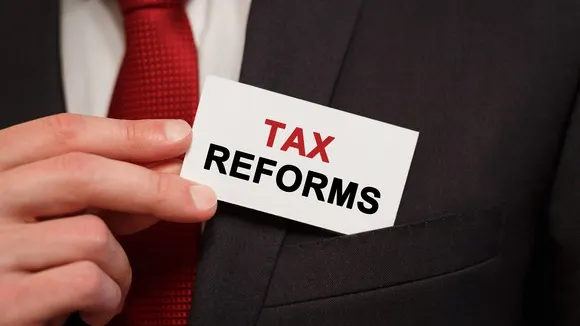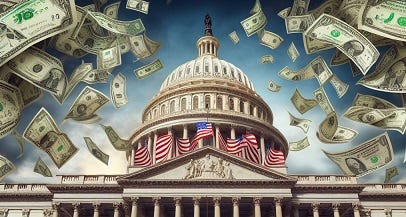How U.S. Businesses Are Adjusting to New Corporate Tax Policies

February 28, 2025
The U.S. government has introduced significant corporate tax reforms aimed at adjusting business taxation, enhancing economic growth, and addressing fiscal challenges. These changes affect corporations of all sizes, influencing their financial strategies, operational decisions, and long-term investment planning.
With new tax regulations altering corporate rates, deductions, and reporting requirements, businesses across sectors are reassessing their financial plans. This article examines the key aspects of these reforms, their impact on U.S. businesses, and how corporations are adapting to the evolving tax landscape.
Key Changes in Corporate Tax Policies 1. Adjustments to Corporate Tax RatesOne of the most impactful changes in recent tax reforms is the adjustment in corporate tax rates. Lower corporate taxes can boost business investments, while potential increases may lead to cost-cutting strategies, such as restructuring or relocating resources.
2. Changes in Deductions and IncentivesReforms have modified deductions on business expenses, including depreciation, research and development (R&D) incentives, and interest deductions. These adjustments aim to encourage investment in innovation, infrastructure, and sustainability.
3. Global Taxation and Foreign ProfitsFor multinational corporations, new rules on taxation of overseas profits and repatriation of earnings play a crucial role. U.S. businesses with international operations must navigate new compliance measures affecting tax liabilities and global financial planning.
4. Small Business Taxation AdjustmentsSmall businesses face unique changes, including modifications to pass-through entity taxation and small business deductions. These reforms could impact entrepreneurship, hiring decisions, and expansion strategies.
Impact on U.S. Businesses 1. Corporate Investment and ExpansionLower tax rates and enhanced deductions can encourage corporations to invest in growth initiatives, such as hiring more employees, expanding facilities, and increasing R&D efforts. However, higher tax burdens may lead businesses to limit expansions and cut costs.
2. Financial Strategy AdjustmentsMany companies are restructuring their financial strategies to optimize tax benefits. This includes reevaluating capital expenditures, adjusting dividend distributions, and exploring new investment vehicles.
3. Mergers, Acquisitions, and RestructuringChanges in corporate taxation can affect merger and acquisition (M&A) activity. Some businesses may pursue restructuring or acquisitions to optimize tax advantages and enhance profitability.
4. Innovation and Sustainability InvestmentsRevised tax incentives for clean energy and technology innovation may drive more businesses to invest in renewable energy projects, sustainability efforts, and cutting-edge research.
How Businesses Are Adapting
U.S. Investment Policies: Key Trends and Effects on Markets
Explore how U.S. investment policies shape financial markets, economic growth, and business strategies, offering both opportunities and challenges for investors

U.S. Investment Policies and Their Role in Business Development
Explore how U.S. investment policies influence business growth, offering opportunities and challenges for industries. Understand the key regulations and strategies driving economic expansion

U.S. Investment Policy Reforms: Shaping the Future of Business
Explore the key investment policy reforms in the U.S. economy that are reshaping business strategies, influencing markets, and creating new opportunities for investors

A Comprehensive Look at U.S. Investment Policy Shifts in 2025
In 2025, U.S. investment policies have undergone significant transformations. Discover how these reforms are impacting industries, investment strategies, and economic growth

Analyzing the Impact of U.S. Investment Policies on Investment Strategies
Explore how evolving U.S. investment policies create new opportunities and risks for investors. Learn how changes in tax, trade, and financial regulations affect investment strategies

A Look Ahead: U.S. Investment Policies and Financial Market Trends
As the U.S. economy evolves, so do its investment policies and financial markets. Discover what the future holds for investors as we explore trends, innovations, and challenges in U.S. investment strategies

A Guide to Understanding U.S. Investment Policies for Business Growth
Explore how U.S. investment policies impact business success. Learn how to navigate key regulations, tax incentives, and funding opportunities to maximize growth potential

How U.S. Government Policies Influence Investment Approaches
The U.S. government plays a key role in shaping investment strategies through regulatory frameworks, fiscal policies, and incentives. Explore how these factors impact business decisions and investment trends

U.S. Investment Policies and Global Impact
U.S. investment policies are reshaping global markets, influencing trade, foreign investments, and economic stability. This article explores the implications for international businesses and investors
The Atlantic Daily
Get our guide to the day’s biggest news and ideas, delivered to your inbox every weekday and Sunday mornings. See more newsletters
.webp)
Ideas That Matter
Subscribe and support more than 160 years of independent journalism.
Subscribe